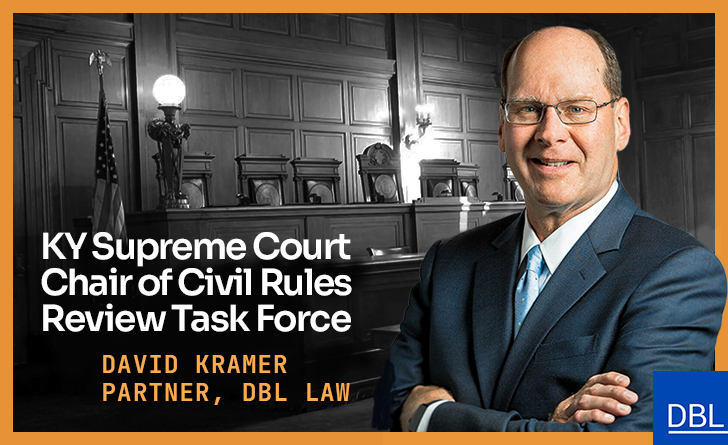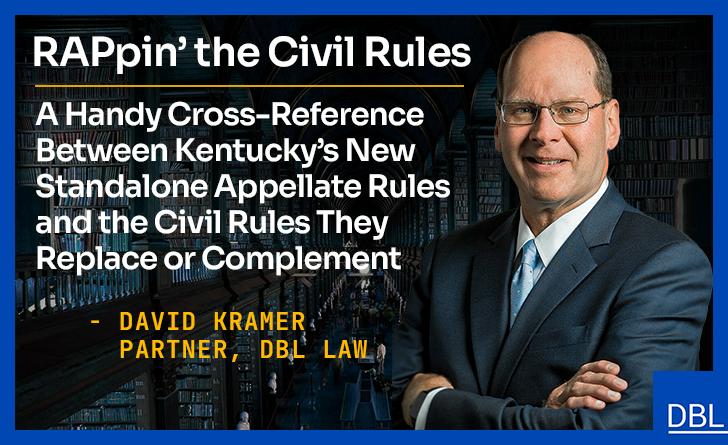A recent decision of the Kentucky Supreme Court highlights the risk a nonresident defendant takes in refusing to accept certified mail service of a summons and complaint from the Kentucky Secretary of State under the long-arm statute.
In Verralab Ja LLC v. Cemerlic, 584 S.W.3d 284 (Ky. 2019), the plaintiff, a Kentucky laboratory that does drug-testing for medical providers, sued a nonresident physician and his professional corporation for nonpayment of charges. The plaintiff laboratory arranged service on the nonresident individual and his LLC by the Kentucky Secretary of State using certified mail as permitted in the Kentucky long-arm statute, KRS 454.210(3). The certified mail was returned with both handwritten and sticker notations that service was “refused” by the defendants.
The trial court granted the plaintiff’s motion for default judgment. The nonresidents appealed, and in a 2-1 decision the Kentucky Court of Appeals set the default aside. See 2015-CA-284 (12/1/2017). The Court of Appeals took note of prior case law holding that a nonresident receives proper service under the long-arm statute as long as the service complies with the statute, even if the defendant did not receive the certified mail containing the summons and complaint. The Court thus affirmed the trial court’s finding the defendants had been properly served by certified mail, even though they refused to accept and sign for it. However, the Court of Appeals reversed the trial court based on the defendant’s claim that he did not know what was in the refused certified mail envelope. The Court of Appeals characterized the defendant’s state of mind as “surprise due to lack of knowledge of the lawsuit,” and believed that the defendant thus showed a valid excuse for being in default and good cause for setting the default aside.
On discretionary review, the Supreme Court reversed and reinstated the default judgment. The Court agreed with the Court of Appeals that service was effectuated on the nonresident under the long-arm statute. However, the Supreme Court also noted that setting aside a default judgment requires a showing of good cause, and found that “intentional avoidance of service cannot equate to good cause.” The Court went on to state that “an affirmative action taken to avoid service of process (such as the refusal of certified mail in this case) is abusive of the system and certainly falls short of good cause.” Thus, a nonresident defendant who refuses to accept certified mail service from the Kentucky Secretary of State runs the risk of having a default judgment entered that is not subject to being set aside based on a claim of not being served or a claim not to knowing the content of the certified letter.
The Verralab case raises an interesting question now that the long-arm statute has been amended (in 2019) to provide for service on a nonresident “in any manner authorized by the Kentucky Rules of Civil Procedure,” thus adding registered or certified mail service by the court clerk or the plaintiff as an option without utilization of the Secretary of State. Under the long-arm statute, the Secretary of State is “deemed to be the statutory agent” of the nonresident. KRS 454.210(3)(a)(3). Also, the summons is deemed to be served on the return of service by the Secretary of State, which return is to include the “registry receipt, if any.” KRS 454.210(3)(c). However, for registered or certified mail service under CR 4.01(1), which can be made either by the clerk of court under CR 4.01(1)(a) or by the plaintiff under CR 4.01(1)(c), “[s]ervice by registered mail or certified mail is complete only upon delivery of the envelope.” Also, under CR 4.04(8), service on a person outside of Kentucky by registered or certified mail who does not make an appearance in the case “shall not authorize a personal judgment, but for all other purposes the individual summoned shall be before the courts as in other cases of personal service.”
These provisions in the Civil Rules seem to indicate that a plaintiff who does not effectuate certified mail service via the long-arm statute through the Secretary of State, but rather attempts to make certified mail service on a nonresident defendant, or who arranges such service through the court clerk instead of the Secretary of State, may not rely on the Verralab holding to support a default judgment (at least for a personal judgment) if the envelope is returned refused.
NOTE: This post includes commentary reprinted from the 2019 edition and the forthcoming 2020 edition of 6 Philipps & Kramer, Kentucky Practice, Rules of Civil Procedure Annotated, by David V. Kramer, with permission of the author and publisher. Copyright (c) 2020 Thomson Reuters. For more information about this publication, click here.
David Kramer is a Partner and Chair of the Civil Litigation Practice Group of DBL Law, with offices in Cincinnati, Ohio, and in Crestview Hills and Louisville, Kentucky.



